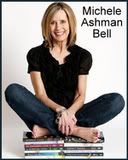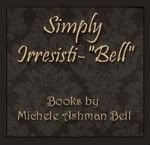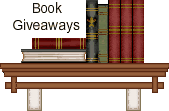
Paul Rimmasch was born and raised in the Salt Lake Valley. He graduated from Weber State University with a Bachelor of Science in Criminalistics and a minor in Photography. Paul has spent the last fourteen years working as a Crime Scene Investigator for Weber-Metro CSI and is active in Forensic Science education and Law Enforcement training. He lives in Ogden, Utah, with his wife and three children and is an avid hiker and gardener.
Paul had parlayed a life long interest in Book of Mormon Archaeology and LDS Church History into this, his first novel.

In a recent press release about the book author, Paul Rimmasch, says this about the story;
“The Lost Stones is a story about Ammon Rogers, an Iraqi war veteran who is trying to rediscover his faith after returning from his military service. Ammon is struggling in this process, however, due to the gulf that he perceives to exists between science and religion.”
When Ammon is introduced to a self-styled “forbidden archaeologist” and his daughter, he is plunged into an adventure where he learns that the rift between what he learned in school and what he learned in church is not as wide as he once thought.
“The spiritual and emotional journey Ammon undergoes as the story unfolds mirrors my own,” Rimmasch continues. “As a young person, I had faith and science neatly compartmentalized in separate regions of my intellect. It wasn’t until later that I discovered that there was a whole world of archaeological, anthropological and other evidence that lends credence to matters spiritual. It is a whole world of evidence that mainstream academics in the best case casually dismiss, and in the worst case downright suppress.”
“The Lost Stones is the product of extensive research and contains copious footnotes and an extensive bibliography,” Rimmasch said of his work. “While I definitely want those who read my book to enjoy the adventure and romance of the story, I also want to enlighten and educate the reader.”
The themes of The Lost Stones are extremely relevant today, in a day and age where the drum beat of science seeks to drown out all things divine. “Every person who is conscientiously trying to come to grips with the faith vs. science debate must go through virtually the same process Ammon does in the pages of this book,” argues Rimmasch.
Although written from an LDS (Mormon) perspective, the messages of faith, friendship, and personal discovery will resonate with readers of all faiths.
Interesting Facts:
1600s Mexico- The Aztec Prince Ixtililxochitl writes that the first people to inhabit his land came from the Tower of Babel at the dividing of tongues…Scholars dismiss his writings as myth.
-----
1800s Mid Western United States- Settlers dig into ancient burial mounds and discover thousands of slate tablets covered with a strange hieroglyphic writing and drawings depicting Jesus Christ…these artifacts are denounced as a hoax.
-----
1909 Arizona-a newspaper runs a story describing how a cave containing metal artifacts and Egyptian-type hieroglyphics was discovered in the Grand Canyon by a group of Scientists from the Smithsonian Institute…the Smithsonian categorically denies the account.
About the book:
The world of forbidden Book of Mormon archaeology is a world BYU student and Iraqi War veteran Ammon Rogers never knew existed. He is thrust headlong into this world when he asks the enigmatic adventurer John Byrd a simple question. When John is kidnapped in Mexico, Ammon joins forces with John’s beautiful daughter in a desperate attempt to not only save John, but to find his answer…an answer that will change the world…an answer one sinister foe will do anything to suppress.
I found this book exciting and interesting from the very first page. I love the whole premise of the story and appreciated the depth of research that went into Rimmasch's book. The story is a great blend of fact and fiction and kept me entertained the entire time. Great characters, plot twists and turns, and vivid descriptions will make this story come alive. I'm thrilled to know it's the first in a trilogy and can't wait for more!
I was fortunate to be able to interview Paul and find out more about his writing and some background on the book.
M.B.: When did you first know you wanted to be an author?
Paul: I’m embarrassed to say that being an author was something to which I never aspired. Writing The Lost Stones was a form of catharsis. The story and characters so preoccupied my thoughts that writing it down was the only way to find peace.
M.B.: What is your writing and educational background?
Paul: I have a bachelor’s degree in Forensic Science from Weber State University and work as a Crime Scene Investigator. The only writing I did before The Lost Stones was crime scene reports. I know that sounds terrible.
M.B.: What makes you passionate about writing?
Paul: I love doing the research. That is the most enjoyable part for me. I also love taking someone to a place they’ve never been before. It is very gratifying when someone comes up to me and says, “Is the stuff you wrote about in chapter twelve real? I’ve never heard of that before.”
M.B.: What was the pathway like for you to get your first book published?
Paul: When I finished the manuscript for The Lost Stones I was pretty pleased with how it had turned out. Ignoring the advice of some friends, who thought I should wait and clean it up first, I submitted it to a publishing company. They turned it down so I sent it off to Cedar Fort. They accepted it and the rest is history. Knowing what I know now about how hard it is to get published I think it was rather naïve of me to send out my first draft like that. But it all worked out.
M.B.: Were you ever discouraged along the way? If so, how did you deal with it?
Paul: Oh yes! That first rejection letter really stung. It made me definitely question whether I was wasting my time or not. But I got over it. I had a good feeling about my story so I kept on going.
M.B.: What is your writing schedule like?
Paul: I squeeze writing in when I can. When I’m in the thick of a project I don’t watch much TV. It’s typical for me to come home from work and write a little bit before dinner. Then I write some more before having to rush off somewhere like the store or to pick up a child from some activity. I’m usually anxious the whole time because I want to finish some scene before I forget something I had in mind. Then I come home and stay up later than I should. That’s the way it goes most of the time.
M.B.: Where do your ideas come from? How do you know the idea is
good enough to write a book about it?
Paul: Most of my ideas for The Lost Stones came from a nationally syndicated overnight radio program called “Coast to Coast AM.” That show has gotten me through many a long night shift. What makes it so wonderful is its eclectic subject matter. They talk about UFOs, ghosts, lost civilizations, ESP, conspiracy theories, alternate energy, astronomy, religion and everything in between. That show is very fertile ground for ideas. A month before my book came out I scored a two-hour interview on that show. It was a great experience.
M.B.: When did the idea for this book first come to you?
Paul: I can’t really say. The story just crystallized over the course of several years.
M.B.: What do you hope readers will get from this book?
Paul: I went for the trifecta. I hope people are entertained, educated and uplifted. The ending of the book was written to foster hope and faith.
M.B.: What is your process of brainstorming a story? Do you just sit down and write, waiting to see what happens next? Or do you outline first?
Paul: The story was pretty much outlined in my head before I started. I did write down certain “vignettes” that I didn’t want to lose and had a general event chart but I didn’t have an extensive outline.
M.B.: Do you ever experience a snag in a story, a form of writer's block? If so, how do you deal with it?
Paul: Yes, of course. I have great difficulty writing descriptive sequences. I do much better with dialogue. There are times when I just can’t figure out how to describe a room or a building or whatever. I get through it by trying and re-trying. I’m surprised the “delete” key on my laptop still works. I also tend to get bogged down in the middle of the story. I’m excited to start and to finish but the middle is a slog.
M.B.: Do you need absolute quiet to write? Do you listen to music when you are writing?
Paul: I don’t actually need quiet. As a father of three active children, I’m not even sure what that word means. I do listen to music at times. In fact, there are certain scenes that have certain songs associated with them in my mind. Listening to that song gets me in the right frame of mind to write that particular scene. The only thing I can’t listen to and write at the same time is someone else reading aloud, like when my wife is reading to the kids. I think it throws the “voice” of my own characters off-kilter.
M.B.: What kinds of inspiration do you use during your story creation periods?
Paul: So far I have had a concept of what “factual” things I want to cover in my “fictional” work. Doing research into these areas has never let me down. Main plot points have always presented themselves.
M.B.: Who has made the greatest difference for you as a writer?
Paul: That is a hard question. The love and support of family and friends has certainly given me the strength to go on when I wondered what I was doing. Style-wise, Michael Crichton and Dan Brown have had the greatest influence on me.
M.B.: What’s your secret to making the characters in your books come to life?
Paul: I tried to avoid clichés and stereotypes. I realize that is almost impossible to do completely, but I tried. I am, by no means, a strong writer. My wife was my main reality check. She would “screen” the actions and words of my characters. I relied on her opinion a lot. If Sariah Byrd is a pleasing character to female readers, you can thank my wife.
M.B.: Do you use a critique group during the writing process? Why or why not?
Paul: I haven’t so far. When I wrote The Lost Stones I was so new to the game that I didn’t even know such things existed.
M.B.: What is something about yourself people don’t know?
Paul: I’m addicted to raw sunflower seeds.
M.B.: What is your favorite snack to have while you are writing?
Paul: I have a small fridge full of Dr. Pepper right next to my writing desk.
M.B.: What words of advice do you have for other writers who desire to have their manuscripts become books in print?
Paul: Believe in yourself. Don’t let people talk you out of chasing your dream.
M.B.: What are you working on now?
Paul: The manuscript for the sequel to The Lost Stones is finished. I’m currently in the research phase for the third book in that series.
M.B.: Any final words you would like to share?
Paul: I have noticed that there are many people who are in love with the “idea” of writing a book but never do it because they are not in love with the hard work and sacrifice that it takes to actually do it. If writing a book is your dream, learn to love the work. Only then will you reach your goal.
M.B.: Where can our readers go to find your books and order them?
Paul: The Lost Stones is at both Deseret Book and Seagull Book, as well as online at Amazon.com and Barnes & Noble.com.
Links-
www.loststonesbook.com
www.facebook.com/theloststones
http://www.youtube.com/user/paulrimmasch
For more information on The Lost Stones visit www.facebook.com/theloststones





























































-page-001.jpg)













